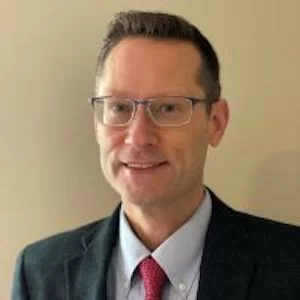A Family’s Green Legacy: Harting – Sustainably Connecting the World’s Transmission of Energy & Information
|
Getting your Trinity Audio player ready...
|
In the heart of Germany lies a story of generational stewardship and a commitment to environmental sustainability. It is the story of a family whos journey from hunters to pioneers in green energy reflects a profound dedication to leaving a positive impact on the planet.
The tale begins with the founders, Wilhelm, and Marie Harting, who established the company, Harting, in 1945. Inspired by two books of the time that discussed the ramifications of population growth and environmental exploitation, the Hartings embarked on a mission to restore and protect their local land. In 1968, on a sprawling 1000 hectare estate, they began planting trees, not just to enhance the environment but also to support local wildlife.
Driven by a vision of sustainable land management, Wilhelm networked with fellow hunters, eventually purchasing the entire property when the opportunity arose. Subsequently, they acquired an adjacent estate, recombining what was once a fragmented landscape into a unified expanse under their stewardship. In 1979, a pivotal book by Arnold Toynbee, A Study of History, explored the rise and fall of civilizations, prompting profound questions about humanity’s role in shaping the future of the planet. The book triggered the Hartings to engage in an exercise of introspection, as it echoed the family’s own concerns and aspirations, challenging them to consider whether they would be agents of destruction or salvation for Mother Earth.
With the introduction of the Renewable Energy Sources Act (also known as the EEG Act), which incentivized renewable energy production, they saw an opportunity to transition toward a more sustainable model of operation. This ultimately led to plans for the establishment of biogas facilities, where organic waste could be converted into bio-methane and biogas, providing not only electricity but also heat and thermal power to run their growing company operations.
Over the years, Harting grew to be known as a pioneer in innovation for electrical connectivity,
and the family’s commitment to sustainability deepened. By 2011, they had transitioned their operations to provide heat entirely via bio-methane, eliminating the use of coal and significantly reducing their carbon footprint. This transition was not just about energy production; it was a comprehensive approach to sustainability that the company could leverage to run their entire manufacturing operations, from sowing fields to generating biogas, which is used to power and heat their facilities – factories that produce the fundamental connectors required to enable an all-electrical society and further the advancement and adoption of Industry 4.0.
The passing of the torch from Dietmar Harting to his son Philip in 2015 marked the transition to the third generation of leadership and a continuation of the company’s legacy. Building upon his father and grandfather’s foundation, Philip steered the family business further down the path of sustainability and digitalization, embracing innovation and efficiency at every turn.
Today, as the world grapples with pressing environmental challenges, the story of this family stands as a beacon of inspiration. Their journey reminds us that sustainability is not just a buzzword; it is a way of life, woven into the very fabric of their existence. In their tireless efforts to harmonize with nature, they offer a glimpse of what’s possible when passion, dedication, and foresight converge in the pursuit of a greener, more sustainable future.
About the author
 This article was written by Greg Orloff, Industry Executive, IIoT World. Greg previously served as the CEO of Tangent Company, inventor of the Watercycle™, the only commercial residential direct potable reuse system in the country. Greg holds a Bachelor’s of Science degree in Environmental Science and Engineering from The Ohio State University, a Masters of Business Administration in International Business from Case Western Reserve University’s Weatherhead School of Management, and is a graduate of the Ivey Business School’s Executive Leadership Program at Western University.
This article was written by Greg Orloff, Industry Executive, IIoT World. Greg previously served as the CEO of Tangent Company, inventor of the Watercycle™, the only commercial residential direct potable reuse system in the country. Greg holds a Bachelor’s of Science degree in Environmental Science and Engineering from The Ohio State University, a Masters of Business Administration in International Business from Case Western Reserve University’s Weatherhead School of Management, and is a graduate of the Ivey Business School’s Executive Leadership Program at Western University.



